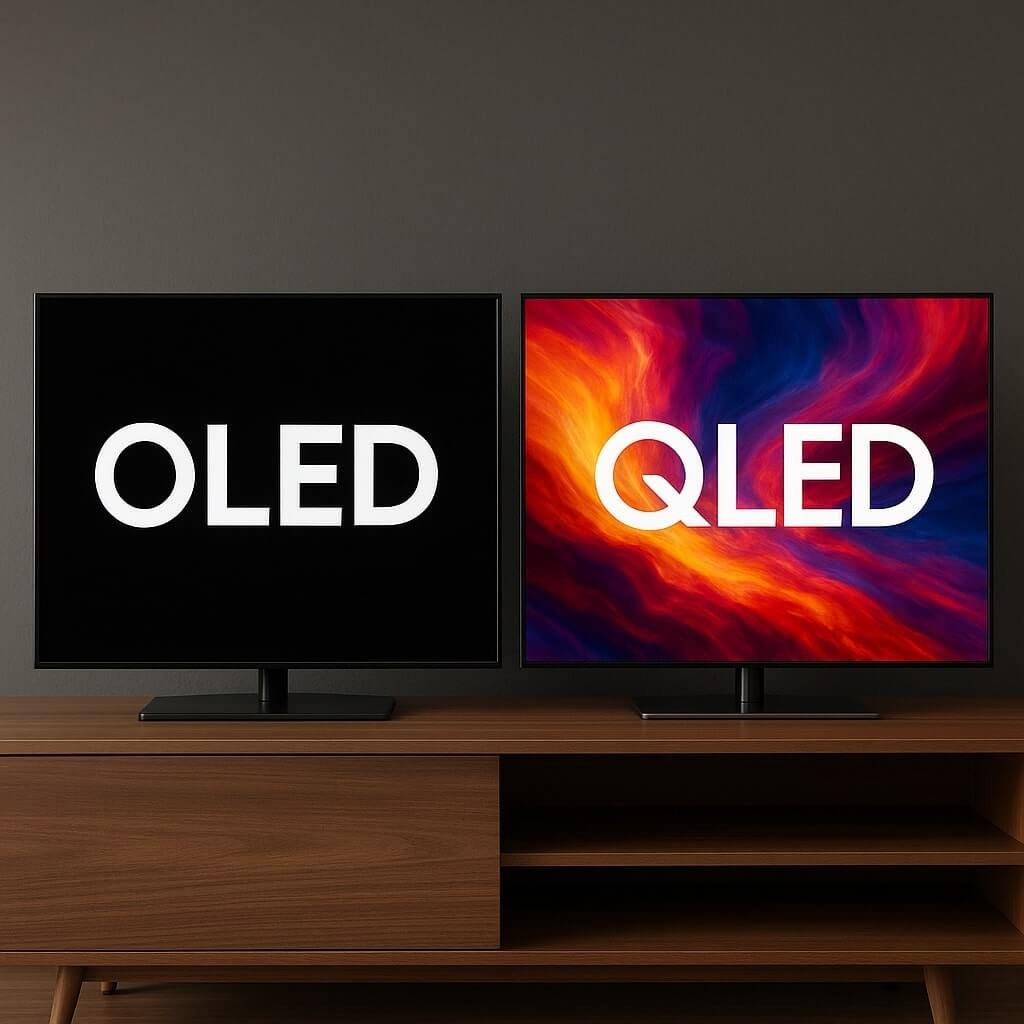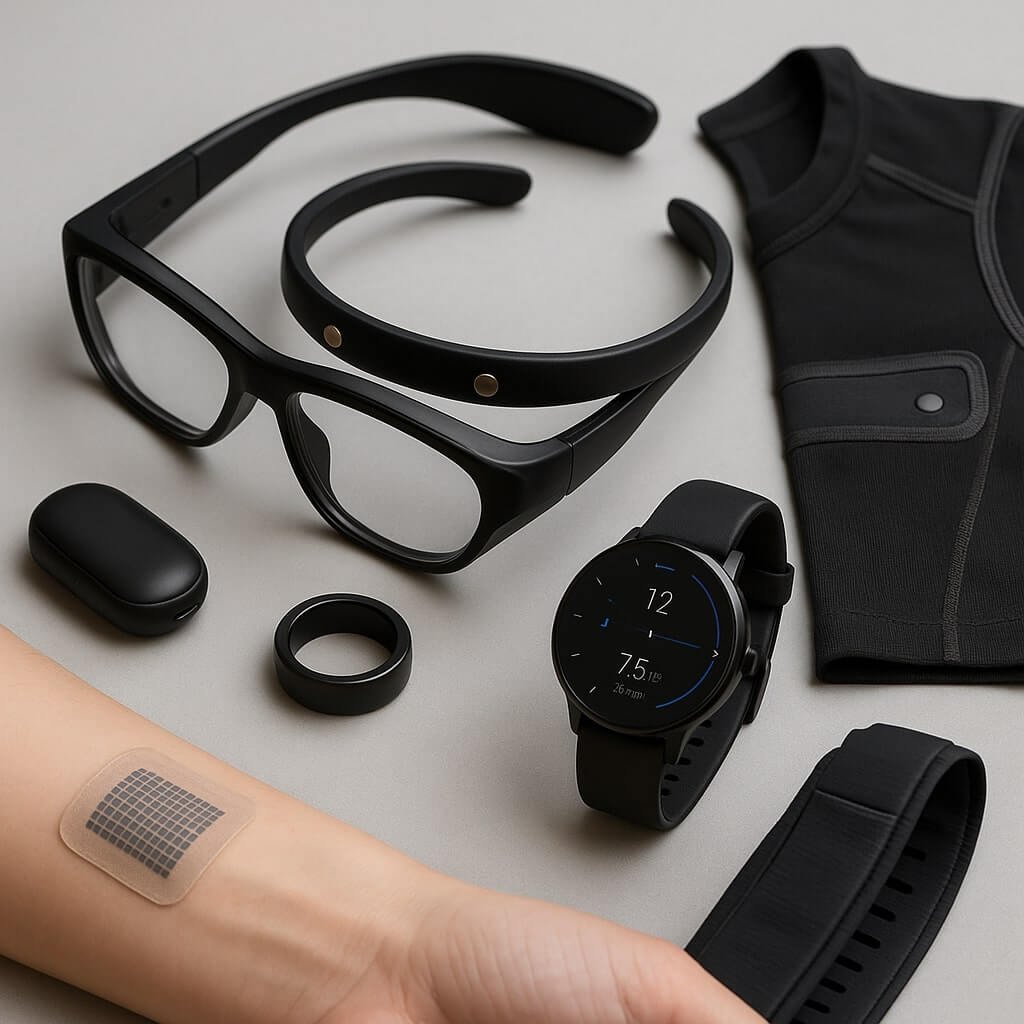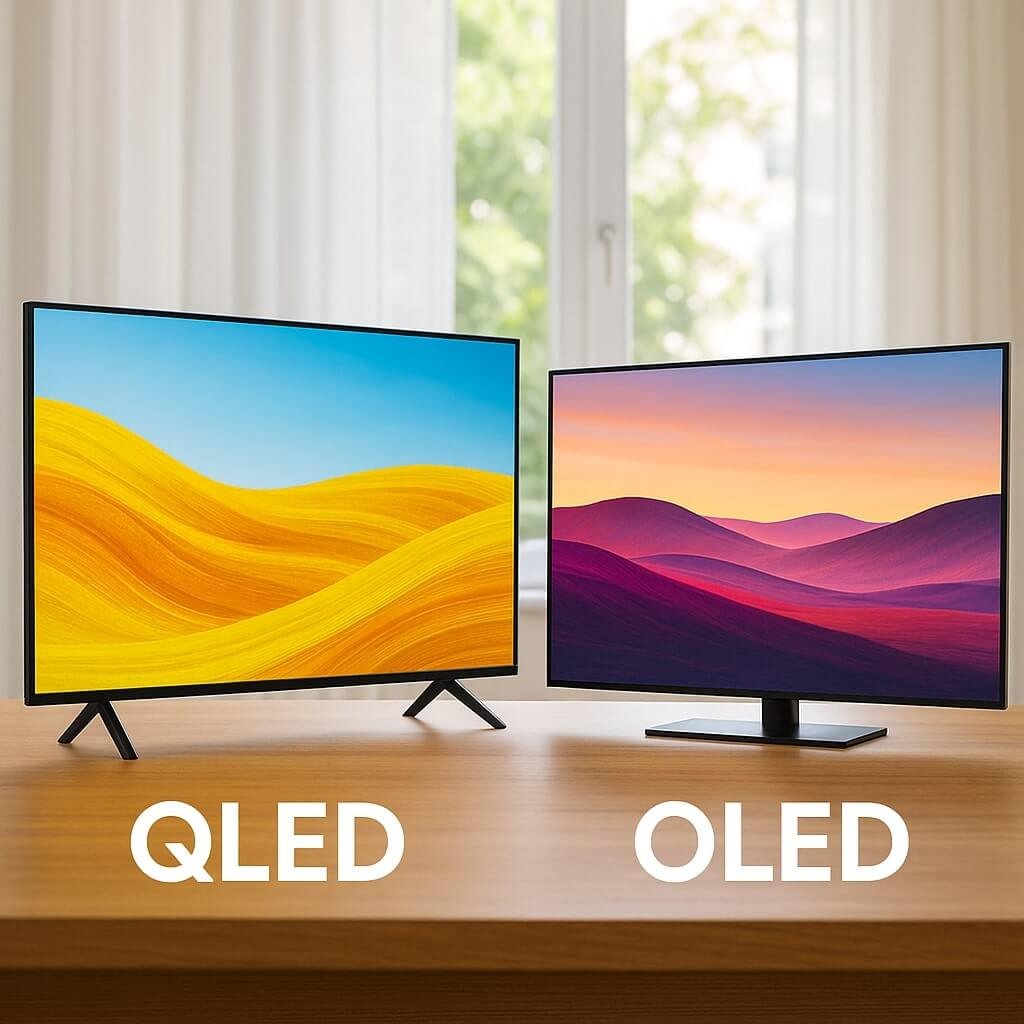When it comes to choosing the perfect gaming display, two technologies dominate the premium space: OLED and QLED. Each offers unique strengths and potential drawbacks, and choosing between them is more than just a question of cost or availability. This article offers a comprehensive breakdown tailored specifically for gamers, examining performance metrics like input lag, refresh rate, response time, and HDR rendering to determine which is truly the best for gaming.
What Is OLED?
OLED (Organic Light-Emitting Diode) panels generate light on a per-pixel basis, which allows them to switch off individual pixels completely. This results in true blacks, infinite contrast ratios, and ultra-fast response times. Popular OLED displays include models like the LG C-series, Sony A-series, and newer gaming-centric panels from ASUS and Alienware.
Key Advantages for Gamers:
- Perfect blacks and contrast: Ideal for dark scenes in games like horror or cinematic storylines.
- Near-instantaneous response times: Often <1ms, eliminating motion blur.
- Low input lag: Particularly effective when Game Mode is enabled.
- Wide viewing angles: Colour and brightness remain consistent off-centre.
Potential Downsides:
- Risk of burn-in: Static UI elements (health bars, minimaps) may cause retention over time.
- Generally more expensive: Though prices have dropped, OLED panels still carry a premium.
- Brightness: May be dimmer in very bright environments compared to QLEDs.
What Is QLED?
QLED (Quantum Dot Light Emitting Diode) is a display technology primarily used by Samsung and some other brands. QLED is essentially a variant of LCD panels with a quantum dot layer to enhance brightness and colour accuracy.
Key Advantages for Gamers:
- Higher peak brightness: Better for bright rooms or daylight play.
- No burn-in risk: Great for prolonged use with static UI elements.
- Vivid colour reproduction: Quantum dots boost colour vibrancy.
- More affordable at larger sizes: Especially for 4K 55-inch+ panels.
Potential Downsides:
- Inferior black levels: Blacks appear more like dark greys due to backlighting.
- Slower response times: Can range from 5ms to 15ms depending on the panel.
- Limited viewing angles: Colours may wash out from the sides.
Gaming Performance Comparison: OLED vs QLED
| Feature | OLED | QLED |
|---|---|---|
| Response Time | ~0.1ms | 5-15ms |
| Input Lag | Dark grey (edge/backlit) | 5- 10ms (varies by model) |
| Black Levels | True black (pixel off) | Dark gray (edge/backlit) |
| Brightness | Moderate (~600–800 nits) | High (~1000+ nits) |
| HDR Gaming | Excellent contrast, true tone | Bright highlights, wide gamut |
| Burn-in Risk | Possible with static content | None |
| Viewing Angles | Very wide | Moderate |
| Price Point | Premium | Mid to high range |
OLED vs QLED for Competitive Gamer
For competitive FPS or esports titles, response time and input lag are paramount. OLED’s near-zero response time ensures:
- No ghosting or trailing
- Snappier controls
- Higher motion clarity
However, if your setup is in a brightly lit room or if you play for prolonged hours with static UI (like MOBAs or strategy games), QLED’s brightness and longevity make it a better long-term option.
OLED vs QLED for Immersive/Cinematic Gaming
Games like Cyberpunk 2077, The Last of Us, or Red Dead Redemption 2 thrive on visual fidelity. OLED’s deep blacks and superior contrast enhance immersion, especially in dark, story-driven scenes. This makes OLED a favourite among solo and story-mode gamers.
Future-Proofing Considerations
- VRR and HDMI 2.1 support: Most modern OLEDs and QLEDs offer this, but OLEDs generally support it earlier and more widely.
- 4K 120Hz gaming: Widely supported on OLEDs now. QLEDs may offer 4K 120Hz, but often with compromises like higher input lag or colour loss.
- Lifespan: QLEDs have a longer static image lifespan due to no organic material, but modern OLEDs now feature pixel shift and screen refresh technologies to combat burn-in.
Final Verdict: Which Is Best for Gamers?
| Gamer Type | Recommendation |
|---|---|
| Competitive FPS / Esports | OLED |
| Immersive / Cinematic Gaming | OLED |
| Long sessions / Static UI games | QLED |
| Bright room setups | QLED |
| Budget-conscious gamers | QLED |
| Tech enthusiasts / early adopters | OLED |
Conclusion: OLED is technically superior for gaming performance, offering unmatched response time, contrast, and motion clarity. However, QLED still serves well for gamers who prioritise brightness, long-term durability, and affordability.
Frequently Asked Questions (FAQs)
Can OLED TVs get burn-in from gaming?
Yes, but it’s rare with modern OLEDs. Most now include anti-burn-in technologies like pixel shifting, screen savers, and automatic brightness limiters.
Is QLED good enough for 4K 120Hz gaming?
Some high-end QLEDs support HDMI 2.1 and can handle 4K at 120Hz, though often with slightly higher input lag than OLEDs.
Which display type is better for HDR gaming?
OLED typically offers better HDR contrast and dark scene detail, while QLED delivers brighter highlights, which can be great for daylight gaming.
Are there OLED monitors for PC gaming?
Yes, several brands now offer OLED gaming monitors with 144Hz or even 240Hz refresh rates, ultra-fast response, and G-Sync/Freesync support.
How long do OLED and QLED displays last?
QLEDs can last over 7–10 years with no risk of burn-in. Modern OLEDs can also last many years, especially with screen protection features.
Final Thoughts
Choosing between OLED and QLED ultimately comes down to your gaming priorities: If you want the absolute best in picture quality, colour, and responsiveness, OLED is unmatched. But if you prioritise brightness, durability, and price, QLED is still a worthy contender.
For gamers seeking a competitive edge and immersive experiences, OLED remains the display technology to beat.






